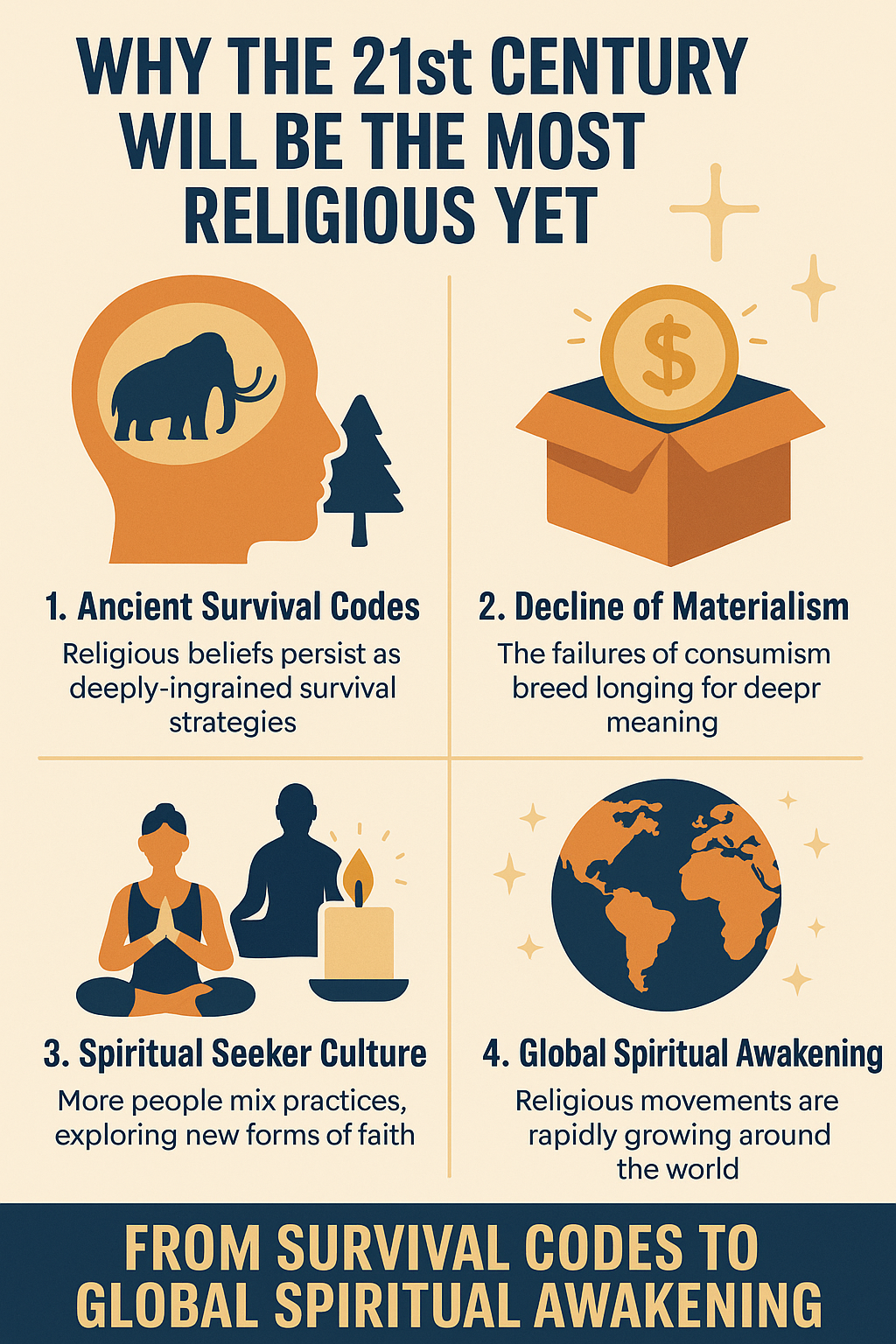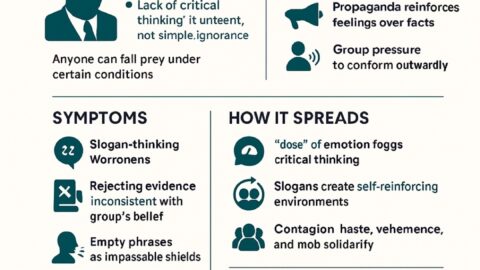Understanding Barnett’s Core Point: Religion, Survival, and Societal Evolution
Thomas Barnett draws a powerful connection between human survival under scarcity and the cultural codes that shaped religious and social life across thousands of years.
- In the Malthusian world (10,000 BC–1800 AD), survival was the dominant concern. Limited resources created a zero-sum environment: if one group prospered, another starved.
- Religious codes during this time emphasized:
- Reproduction: Have many children to survive.
- Obedience: Follow strict hierarchies and moral laws.
- Hardness: War, exclusion, and rigid virtue codes were respected because they kept populations manageable and focused.
Thus, religion was survival. Faith, family, labor, and loyalty were inseparable because abundance was not an option. Every religion became a set of tools for how a community could survive in a cruel, limited world.
The Modern Disruption: Abundance and the Moral Revolution
With the Industrial Revolution (~1800 AD), humanity cracked the code of inorganic growth: technology allowed population booms without starvation. Medicine, energy, and mechanized farming changed the game.
- Suddenly, strict survival codes became less relevant.
- Abundance introduced new freedoms but also new crises of meaning:
- What happens when you don’t need to have 8 children to survive?
- What happens when you can leave your tribe and pursue your own dreams?
Religious structures based on scarcity were challenged. People began moving from given family to chosen family. Authority shifted from elders and priests to individual conscience. You could now question tradition without dying.
Barnett explains this shift in cultural tension beautifully: from God’s way (obedience) to my way (individual freedom).
Examples of this social transition:
- Fiddler on the Roof (Jewish daughters disobeying arranged marriages)
- Bollywood films (daughters rebelling against tradition)
- Western liberalism (freedom of speech, religion, markets)
Today’s World: Evangelical Explosion and the Clash of Old and New
Fundamentalism is the natural reaction of those who refuse the shift to abundance-based living. Evangelicalism, on the other hand, is the method by which new believers spread into the newly emerging abundance zones (Africa, Asia, Latin America).
Key Developments Today:
- Fundamentalists (Islamist groups, militant religious sects) resist global modernization.
- Evangelicals and Pentecostals spread rapidly through the Gap regions (Barnett’s term for the developing world).
- Even atheism and secular ideologies have become “religious” in their intensity and missionary zeal (e.g., environmentalism, identity politics, etc.).
Barnett points out that religious revival accompanies every major period of positive change in American history:
- First and Second Great Awakenings fueled abolition and civil rights.
- The Progressive Era was rooted in religious idealism.
Thus, a global spiritual renaissance is likely inevitable as societies cope with rapid modernization, technological disruption, and cultural confusion.
How It Connects to Today’s Global Oligarchy, Consumption, and Distracted Societies
Barnett’s insights are even more crucial today as global elites attempt to distract the masses through consumerism, materialism, and secular ideologies.
- Consumerism pacifies populations: endless dopamine loops replace purpose-driven life.
- Big Tech creates virtual religions of fame, status, and outrage.
- State power (via surveillance, regulation, and debt) steps in to replace traditional community structures.
The Gap and Core framework Barnett uses still applies:
- The Core (US, Europe, Japan) faces a spiritual void, plagued by secularism, decadence, and identity confusion.
- The Gap (Africa, Middle East, parts of Asia) experiences a religious resurgence, fueled by people desperately seeking meaning as they move from subsistence to participation in global markets.
If not bridged properly, the clash between the secular elites and spiritual grassroots could lead to:
- Widespread destabilization (civil wars, religious wars)
- Hardened authoritarianism to “manage” the transition
- Economic and moral disintegration in “rich” but spiritually dead societies
The Solution: Embrace a True Moral Awakening, Not a Manufactured One
Barnett hints at a critical truth: real revival must be organic and authentic, not manufactured by elites for control.
Solutions:
- Encourage local religious renewal tied to moral discipline, NOT institutional dogma.
- Foster authentic spiritual literacy, not just emotional experiences.
- Build resilient communities that preserve honor, truth, and human dignity over shallow consumerism.
- Balance freedom and responsibility in societies as they modernize.
- Resist false “utopias” sold by the tech elites (metaverses, transhumanism, technocratic control grids).
Historical lesson: Every healthy civilization rose on the back of moral strength, not material abundance alone.
Conclusion: A Global Crossroads
The 21st century is not a secular triumph — it’s a return to the eternal human hunger for meaning.
- Societies that reconnect spiritual wisdom with new technologies will thrive.
- Societies that abandon faith for materialism and control will implode from nihilism.
- The gap between fundamentalism and evangelicalism will define much of the coming global political and cultural battles.
Thus, Barnett is right:
Don’t fear a religious future — fear a future where no true faith survives at all.







